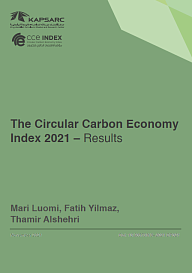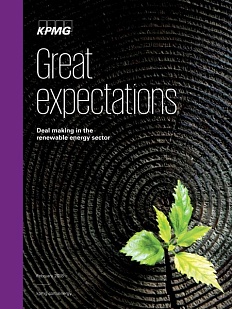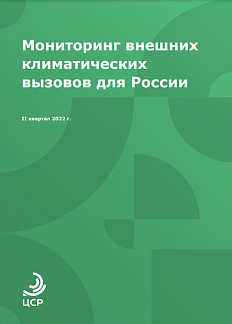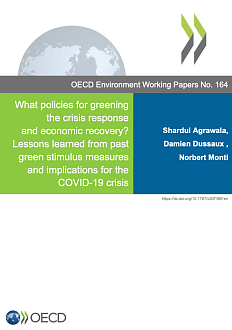Analytical report by Kapsarc is devoted to the assessment and ranking of countries in terms of the level of transition to a circular carbon economy.
Analysts of the Roscongress Foundation have identified the main theses of this study, accompanying each of them with a relevant piece of video broadcasts of panel discussions held as part of the business programs of key events held by the Foundation.
Achieving the climate goals facing humanity by minimizing anthropogenic carbon emissions carries risks that can be minimized in a circular carbon economy.
The modern economic model is based on the intensive use of hydrocarbons. Measures to reduce anthropogenic carbon emissions, aimed primarily at reducing the use of hydrocarbons, can have a significant, in the short and medium term, a negative impact on economic progress in the world. A more viable alternative is the formation of economic models in which carbon is in a closed cycle and is used repeatedly without its emission into the environment with a gradual transition to a low-carbon economy.
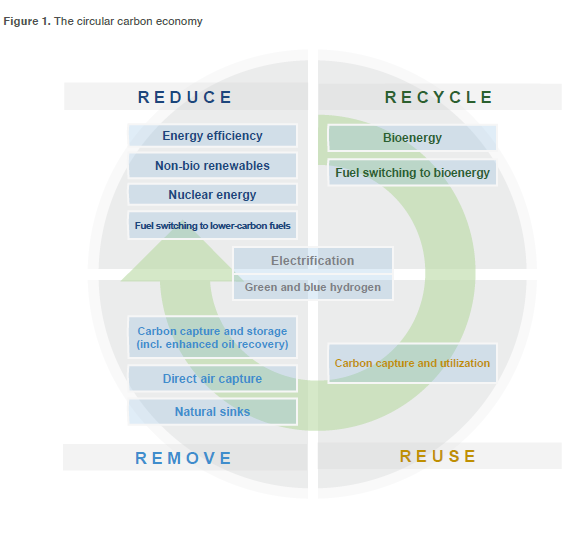
The CCE approach provides a holistic, flexible and pragmatic framework for countries to plan and implement their respective contributions toward the Paris Agreement goals. By assessing all available mitigation options side by side, it helps countries maximize their emissions reduction and management potential. It also helps to ensure cost-effectiveness and equity by encouraging them to play to their strengths whether renewable energy, hydrocarbons with carbon removal, or nature-based solutions.
Video: roscongress.org/sessions/borba-s-izmeneniyami-klimata-investitsii-v-budushchee/search/#00:48:36.095
Currently, among the main directions of reducing the carbon footprint, the best results, in the countries under consideration, have been achieved in the transition to low-carbon energy sources. However, actions that require a high level of technological development or large investments have achieved the desired results in only a subset of countries.
In terms of the relative contributions of individual CCE activities to country scores, the greatest contributions, on average, come from renewables and electrification (34%) and energy efficiency (22%). However, there are significant differences among individual countries, which reflects the spirit of the CCE, namely that different countries will advance toward carbon circularity through different routes. Most countries are making progress in switching away from high-carbon intensity fuels in the power sector. Performance is more uneven in areas requiring either access to technology (nuclear energy) or capacity to invest in new technologies (hydrogen and carbon capture and storage). Countries also show varying rates of success in conserving their existing forest resources.
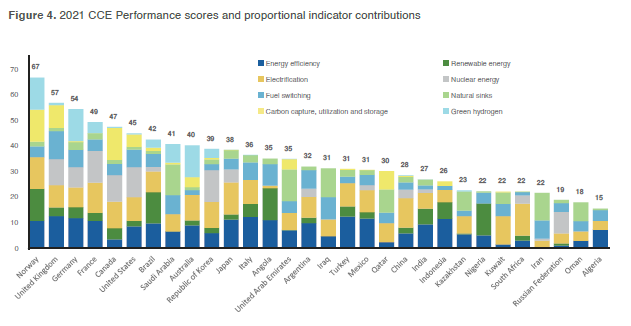
Prospects for the development of the circular carbon economy largely depend on the speed of development, implementation and diffusing of relevant technologies and innovations, as well as on the amount of available funding.
While many developed economies have been advancing on clean technology deployment, progress in emerging and developing countries in creating, diffusing, and absorbing the required knowledge has been more limited. Similarly, many countries are facing challenges in leveraging sustainable finance, partly because of the low institutionalization of the necessary regulatory frameworks. While progress in policy and regulatory enablers for the CCE is less uneven across countries, gaps continue to exist, and all countries need to step up their efforts to reach carbon circularity within the agreed global timeframes.
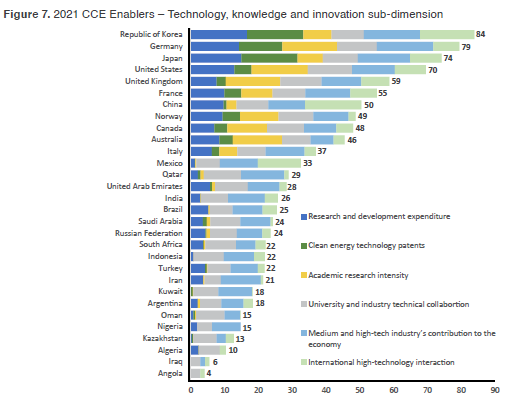
We also invite you to familiarize yourself with other materials posted in special sections of the Roscongress Information and Analytical System Climate Change, Power generation, Renewable energy sources dedicated to responding to the climate challenge.


